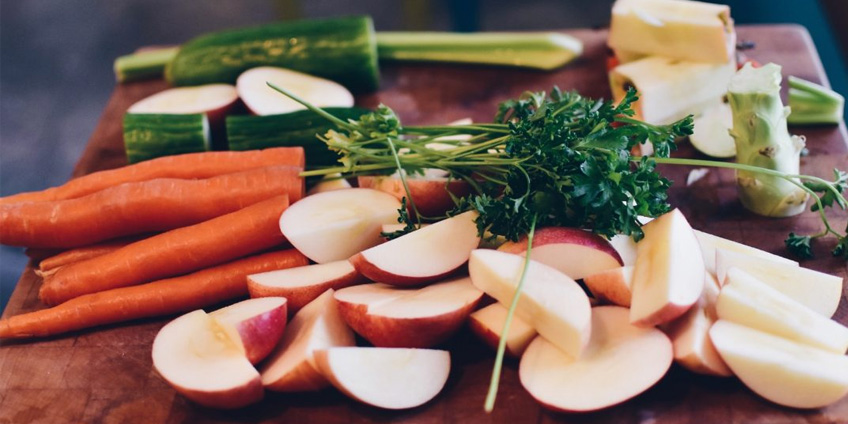Should you avoid gluten? Well, that depends. My general rule is that gluten isn’t great for anyone but some people don’t have to avoid it strictly.
A gluten-free diet benefits people with Celiac Disease, Non-Celiac Gluten Sensitivity, IBS (irritable bowel syndrome), and any autoimmune disease. Not sure if this is you? Try going gluten-free for a month and see how you feel.
Having gluten intolerance or sensitivity helps to have a gluten-free grocery list as a reference. The good news is that many foods are naturally gluten-free and you probably already eat many.
Grains – You’ll want to avoid wheat, barley, and rye. But that leaves many grains that are good including quinoa, gluten-free oats, millet, rice, corn, and buckwheat. You can find many of these at your local supermarket or health food store.
Vegetables – All vegetables are naturally gluten-free. You can eat a wide variety to get the vitamins and minerals you need. A few examples are zucchini, green beans, peas, lettuce, carrots, eggplant, peppers, onions, broccoli, cauliflower, and potatoes. I think there is no such thing as too many vegetables in your diet.
Fruits—All fruits are also naturally gluten-free. There are many different fruits, and it’s fun to add new ones to your menu. For example, try watermelon, kiwi, clementines, star fruit, mango, pomegranate, and papaya.
Meat—Most meats are gluten-free, including beef, chicken, pork, and turkey. However, you need to pay attention to processed meats. Make sure to carefully look at the labels of sausage, hot dogs, lunch meats, and any other packaged meats. These can sometimes have gluten added to them.
Fish—Fish are generally gluten-free. Again, you’ll need to look at processed fish to make sure. For example, breaded fish filets are probably breaded using wheat flour-based breadcrumbs, which means they contain gluten.
Beans–Beans are a great source of carbohydrates and proteins when eliminating gluten from your diet. Black beans, navy beans, black-eyed peas, pinto beans, and white beans all are great for your diet. Where you need to pay attention is with soups and other flavored beans that might contain gluten.
Milk – Many milk products are gluten-free. One thing to note, though, is that if you’re having a bad reaction to gluten you may also have lactose intolerance. That makes it difficult to drink milk. But when your diet gets under control you may be able to back to it. Good milk products include plain milk, cheese, yogurt, sour cream, and cottage cheese. Some yogurts contain additives that could contain gluten, so check the labels. If you have a lactose problem, you may want to try milk products made for lactose-intolerant people.
Gluten-Free Substitutes – Most of your diet should be filled with naturally gluten-free foods. But for special treats, you may want to consider gluten-free bread, cookies, cakes, and other bakery items to add to your gluten-free grocery list.
Gluten creates inflammation in many individuals. Low levels of inflammation are one key to optimal health. Try going gluten-free. It’s easier than you may think.
Need help? Reach out. We’d love to help you learn more about your body and help you live a healthier and happier life.





